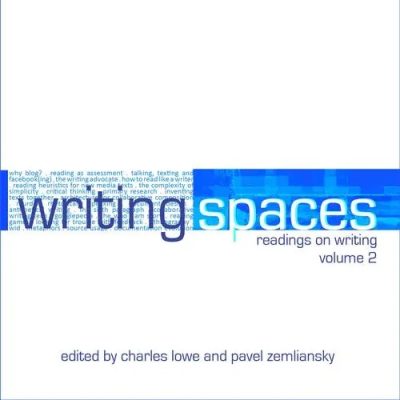11 Karen Rosenberg’s “Reading Games: Strategies for Reading Scholarly Sources”
Writing Spaces Volume 2
Engaging with academic texts can be challenging especially when the intended audience is other academics and not readers who are new to a topic or conversation. While being an outsider to an academic topic can be difficult, Karen Rosenberg describes their own experience with reading difficult texts and how we can approach the process practically. Even if we don’t fully understand everything we read in an unfamiliar topic, by employing a clear reading strategy we can come away from every difficult text with a greater understanding of the topic and questions that can guide us as we synthesize the material.
“If your reading assignments confound you, if they send you into slumber, or you avoid them, or they seem to take you way too long, then pay attention. Based on my experience as a frustrated student and now as a teacher of reading strategies, I have some insights to share with you designed to make the reading process more productive, more interesting, and more enjoyable.”
\
MLA Citation Examples
Works Cited
Rosenberg, Karen. Reading Games: Strategies for Reading Scholarly Sources.” Writing Spaces: Readings on Writing Volume 2, edited by Charles Lowe and Pavel Zemliansky, Parlor Press, 2011, pp. 210-220.
In-text citation
“If your reading assignments confound you, if they send you into slumber, or you avoid them, or they seem to take you way too long, then pay attention. Based on my experience as a frustrated student and now as a teacher of reading strategies, I have some insights to share with you designed to make the reading process more productive, more interesting, and more enjoyable” (Rosenberg 211).
References
Rosenberg, K. (2011). Reading games: Strategies for reading scholarly sources. In Charles Lowe and Pavel Zemliansky (Eds.), Writing spaces: readings on writing, vol. 2 (pp. 210-220). New York: Parlor Press.
In-text citation
“If your reading assignments confound you, if they send you into slumber, or you avoid them, or they seem to take you way too long, then pay attention. Based on my experience as a frustrated student and now as a teacher of reading strategies, I have some insights to share with you designed to make the reading process more productive, more interesting, and more enjoyable” (Rosenberg, 2011, p. 211).
Chicago Citation Examples
Bibliography
Rosenberg, Karen. “Reading Games: Strategies for Reading Scholarly Sources,” in Writing Spaces: Reading on Writing Volume 2, ed. Charles Lowe and Pavel Zemliansky (New York: Parlor Press, 2011), 210-220.
In-text citation
“If your reading assignments confound you, if they send you into slumber, or you avoid them, or they seem to take you way too long, then pay attention. Based on my experience as a frustrated student and now as a teacher of reading strategies, I have some insights to share with you designed to make the reading process more productive, more interesting, and more enjoyable” (Rosenberg, 2011, 211).


